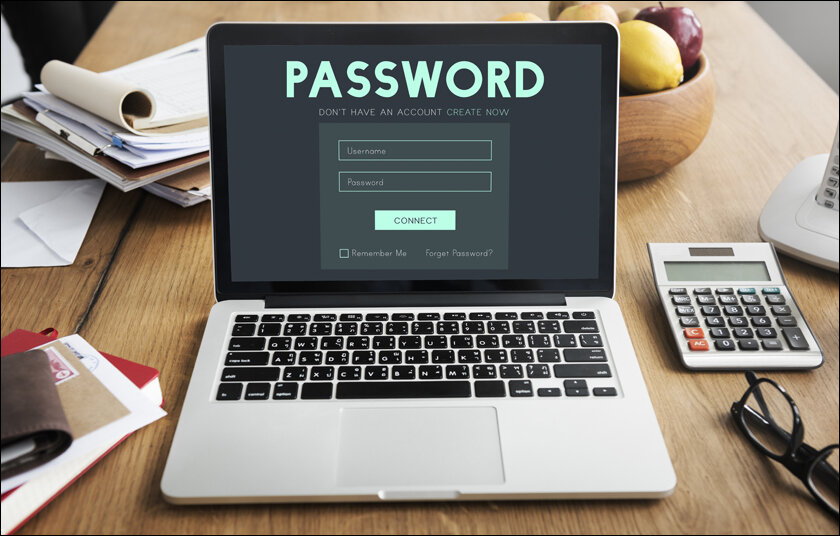Data protection is crucial for businesses handling sensitive information, yet many organizations unknowingly make common mistakes that leave them vulnerable to cyber threats.
Data protection is challenging since data, which nowadays is the most valuable asset, remains perennially exposed, which might result in information compromise. Data security becomes a top priority of companies that operate with sensitive information. These entities must stay one step ahead of data and information security and ensure that no information leak or data breach takes place. On the other hand, too many of them have complexities in terms of data protection that lead to their systems’ being threatened by cyber attacks. Through this article, we will touch upon these commonly made mistakes and the best way their avoidance can be achieved.

1. Weak Passwords and Lack of Multi-Factor Authentication
It is highly common to use simple passwords. These passwords can be simple alphabetical passwords or sequential like 12345678, and this can make it easier for hackers to breach an account. To prevent this, employers should motivate staff members to set long and complicated passwords, a combination of alphabetical characters (both capital letters and small letters), numerals, and special characters.
In addition, the adoption of multi-factor authentication as a security measure gives an additional layer of security. Users must provide authentication with at least two types of credentials, including a password and a one-time code to a cell phone or biometric data like fingerprints. This remarkably decreases the chance of unauthorized access.
2. Insufficient Employee Training
Most data breaches are both the cause and the effect of human error. Those who are not trained appropriately in the protection of data have a higher risk of getting caught by phishing exploits, and they will unintentionally make confidential information public. It is essential for organizations to invest in training programs that involve all workers in the topic of data protection, the diverse threats they may face, and the strategies that might help to prevent data leaks. Regular training sessions and simulated phishing exercises can significantly reduce the risk of human error leading to security incidents.

3. Inadequate Data Backups
Data loss can happen through hardware failure, natural disasters, and even cyber attacks. Implementing a solid backup mechanism is important for data retrieval in case of a breach or a system malfunction. Regularly testing backups and storing them in a secure off-site location is crucial to avoid potential data loss.
4. Neglecting Encryption
Encryption is the most important method of protection of confidential data while it is in transit and at rest. Sadly, a lot of organizations pay no attention to encryption protocols. Encryption of data means that no matter if it is lost, stolen, or intercepted, it will still remain unreadable and unusable to unauthorized access. Encryption is a necessity to maintain the integrity of the data and avoid intrusive attacks.

5. Lack of Regular Software Updates and Patching
It is imperative to use the latest versions of software systems and update old ones. Failure to do patching puts systems at risk, since hackers are ever on the prowl, seeking to exploit already known system loopholes.
Software vendors regularly issue upgrades and fixes to overcome loopholes and security flaws. Organizations should establish a regular patch management system that would allow prompt execution of all software, operating system, and application updates with new security patches. Such a preventive policy can substantially reduce possible attack vectors and decrease the probability of becoming a victim of attacks that are related to exposed vulnerabilities.
6. Poor Access Controls
Not providing the most appropriate access controls is another common error most of the organizations make. Creating extra privileges can result in data manipulation. Zero privilege concept must be strictly addressed. Each user should have the minimum needed level of access to the system. Through implementing robust authentication methods, in combination with regular reviews and updates of authorization controls, it will be possible to deny the backdoor access.
7. Not Following the Data Retention and Disposal Rules
Data policies covering retention and disposal are significant for ensuring information security. Saving information that is not required (hoarding data unnecessarily) can increase the risk of data leaks in case of cyber breaches. Companies should set an accurate data retention policy for their operations, depending on governing laws. In cases when data can no longer be used, safe disposal ways like shredding or purging should be applied in order to prevent somebody from accessing the information improperly.

8. The Lack of Periodic Security Audits
Most organizations ignore the role of regular security assessments and penetration tests. Frequent security audits are key for discovering system and network weaknesses. The mission of regular auditing is to define spots where companies could update their data protection plans.
By conducting regular security assessments, organizations can proactively identify weaknesses before they are exploited by cybercriminals. This allows them to take corrective measures, such as implementing stronger security controls, updating software, or enhancing employee training on cybersecurity best practices. Furthermore, penetration testing provides valuable insights into the effectiveness of an organization’s existing security measures and incident response processes.
Final Thoughts
Strong passwords, multi-factor authentication, ongoing employee training, implementing regular backups, encryption of sensitive data, software patches, effective access controls, data retention policies, and performing frequent security scans are all indispensable components of a comprehensive data protection strategy. One of the ways businesses can protect themselves from cyber threats is by giving priority to data protection and thus lessen the risks that come with cyber threats while securing their valuable information.
In case you missed:
- Top 5 Cloud Security Threats and How to Combat Them
- Compliance and Data Protection: Navigating Complex Regulatory Landscapes
- Securing the Digital Transformation Journey: Cybersecurity Pitfalls to Avoid
- Data Classification and Risk Assessment: Foundations for Effective Data Protection
- Safeguarding Remote Workforce: Data Protection Measures
- Zero Trust Security
- Supply Chain Attacks: Recognizing and Preventing Risks from Third Parties
- All about Ransomware
- Data Management Techniques
- The Importance of Cyber Hygiene: Ten Common Practices for Users









